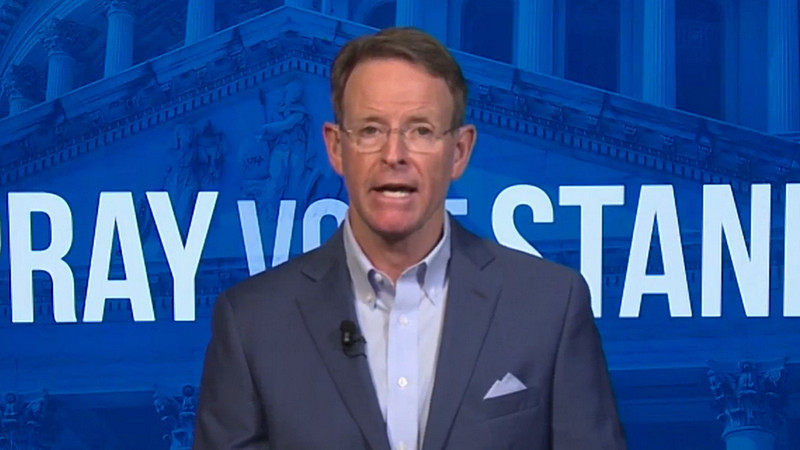A recent fundraising letter from the political action arm of the Family Research Council openly describes its legislative attack on access to health care for transgender youth as a political strategy designed to secure conservative electoral victories in 2022.
The letter and its accompanying “fact sheet” on the “Save Adolescents from Experimentation” (SAFE) Act are filled with disinformation about what it calls “the transgender experiment now preying on thousands of American children.” The premise of FRC’s fundraising package is a false and malicious insinuation that “experimental hormone treatments” and “cosmetic surgery” are being “imposed” on children and are “destroying the lives of thousands of American children every year.”
While FRC falsely claims that gender transition “is an experiment, not medical care,” an April 2021 Harvard Law Review article noted that “every major U.S. medical association recognizes that gender-affirming healthcare is a medically necessary treatment” for people experiencing gender dysphoria—the medical term for distress caused by a discrepancy between a person’s assigned sex and gender identity. For the record, treatment of trans youth begins with therapy and counseling. Children who have not yet reached puberty generally are not treated with medical interventions but may be provided with emotional support to transition socially.
But FRC’s goal is not truth-telling; it is inciting fear and outrage and channeling it for political purposes—a strategy its president make explicit.
“So our strategy is to raise up a powerful nationwide movement of Americans demanding Congress outlaw transgender procedures for minor children by passing the SAFE Act, and get every political candidate on record as either FOR or AGAINST it,” FRC President Tony Perkins writes in the letter, which is dated June 2021. “Our goal: Make the SAFE Act THE ‘wedge issue’ of the 2022 midterm elections!” he continues.
The so-called SAFE Act seems to be a federal version of state-level legislation designed to restrict access to gender-affirming care for young trans people. An Arkansas law enacted over the governor’s veto this spring bore the same name as the federal legislation being pushed by Perkins. Already this year, 29 bills limiting access to trans youth health care have been introduced in statehouses across the country.
FRC’s letter admits that there’s no chance the current Congress will pass the bill, adding, “But if we can make this a central issue of next year’s midterm campaigns, I believe we could see historic gains for pro-family conservatives, retake Congress, and block the radical Biden agenda.” It also says FRC’s “fact sheet” about the legislation “could be the key to conservative victories in the 2022 midterm elections – IF we can spread it far and wide rapidly now!”
Perkins’ letter uses wildly inflammatory language, calling transgender health care “the transgender experiment on our children” and “this growing national horror of child abuse!” It claims that “thousands of vulnerable children fall prey to this destructive ideology every year, consent to have their bodies mutilated by pseudo-scientists, and are left with no recourse when they finally come to regret being deceived and disfigured for life.”
He asks for contributions to support FRC’s efforts to “drive the narrative,” “make the SAFE Act the defining question of the midterm campaign,” and “save thousands of children from the wanton mutilation of their bodies at the hands of the radical left.”
In March, the Poynter Institute’s PolitiFact addressed similar misinformation about medical care for transgender people that was circulating as part of a social media backlash to President Joe Biden’s executive orders protecting the rights of trans Americans and his nomination of Rachel Levine, a transgender woman, to serve as Assistant Secretary of Health and Human Services. Drawing on guidelines from medical professional associations, PolitiFact called such charges unsubstantiated, noting that medical guidelines do not recommend puberty blockers for children who have not reached puberty, do not recommend hormone treatment to those under 18, and generally restrict surgical options to people who are over 18.
A separate fact check from March disputed a false claim that FRC repeats in its June letter—that Levine “supports allowing children to receive body-altering hormone therapy and gender ‘transitions’ without parental notification or consent.”
FRC wrongly asserts that there are “no studies providing long-term benefits from gender transition.” A 2020 research brief by the Trevor Project reviewed research documenting that gender-affirming care for transgender youth has been shown to improve mental health and reduce suicidal ideation and suicide attempts. A study published in April found that gender-affirming surgery in adults improved mental health outcomes. “This study adds to a growing body of evidence showing affirmation in all forms can be life-saving for trans and gender-diverse people,” said the lead author of the study, Anthony Almazan, who added, “Policies that limit access to care can put lives at risk.”
In April, Princeton University psychology professor Kristina R. Olson published a commentary in Scientific American responding to state-level attempts to ban gender-affirming health care for young trans people. Olson argued that “gender-affirming health care should be a right, not a crime.”
Attacks on access to health care for transgender people were also addressed in a recent Right Wing Watch report on anti-trans forces’ targeting of transgender girls and women in sports as a political strategy. That report examined the legislative support provided to state lawmakers by “Promise to America’s Children,” a coalition of anti-trans groups that includes FRC.







